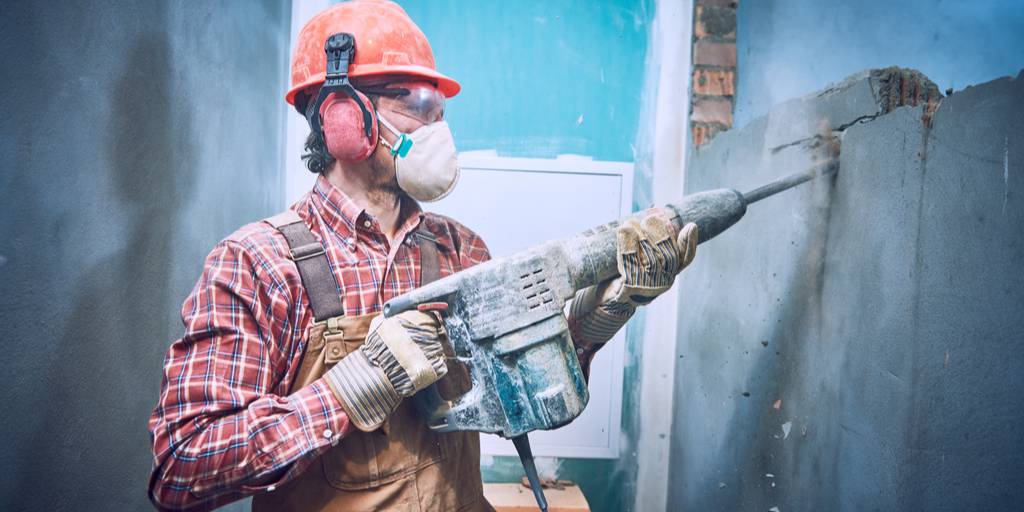According to the Associated General Contractors of America (AGC), more people than ever are choosing to work in the construction industry. In fact, the AGC has found that construction employment is at a 10-year high, with more than 280,000 new jobs added in the past year alone.
While the popularity of working on construction sites continues to grow, a decade-long study of almost 1.5 million American construction workers conducted by the Center for Construction Research and Training discovered that the construction industry accounts for the second-highest number of workers being affected by hearing impairment.
So, what can construction workers do to protect their hearing while on the job? Take a look at the following top noise protection tips to ensure that your ability to work and enjoy life isn’t negatively impacted by hearing loss.
Steer Clear of Off-Site Noise
When working in a noisy industry such as construction, you should be doing your best to avoid loud environments when you’re not on the job. Taking in a concert or going to a large event can be just as noisy as listening to a jackhammer all day long.
You should take noise levels into consideration before you make plans with friends and family members. If you do decide to take part in a loud social event, do your best to diminish your exposure to intense noise levels by staying further back from the stage, speakers, or another source of loud volume.
Try Noise-Cancelling Headphones
Many people listen to music on headphones when working in a noisy environment, which is probably great for those in a 9-to-5 office job. But when you’re working on a construction site, cranking the music up to block out the sounds of machinery can do more harm than good.
Instead, try investing in a pair of noise-cancelling headphones to use when you need some peace and quiet, both on and off the job. These will help to reduce your exposure to damaging noise levels without putting any additional strain on your ears.
Stop Smoking and Check Your Blood Sugar
Giving up cigarettes isn’t only about keeping your lungs healthy and warding off cancer. It’s also a great way to prevent damage to your hearing. That’s because smoking suffocates the cells in your entire body, including those in your ear canals, which increases your chance of losing your hearing.
High blood sugar levels are also damaging to your body’s cells, and they can cause significant levels of hearing loss. If you’re worried that your blood sugar could be too high, you should talk to your doctor about getting your levels checked to ensure they’re within the normal range.
Avoid Ear Canal Damage
Another great way to prevent damage to your hearing is by making sure to never place anything directly into your ear canals. This includes cotton swabs and other devices used to remove wax buildup. You could accidentally injure your eardrum or other parts of your ear that play a critical role in healthy hearing.
Use Hearing Protection On-Site
Worksite safety involves more than just avoiding injury by heavy equipment when you’re on the job. It’s also about making sure that you’re preventing hearing loss by wearing adequate protection in the form of high-quality earplugs or earmuffs.
Industrial-grade hearing protection should be worn at all times when you’re working on noisy construction sites. And if you’re already suffering from some degree of hearing loss, they should also be worn on the street and in other loud environments, in order to keep you as happy and healthy as possible.
Once your hearing is compromised, the damage is usually permanent. For this reason, it’s absolutely critical that you be proactive about preserving those sensitive nerves.
Jordan McDowell is a writer and content strategist. He specializes in technically oriented B2B and B2C content and frequently writes about health and safety for companies like Moldex.


 Sign In
Sign In


